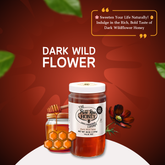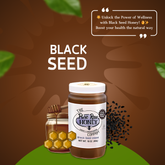Olive oil
Olive oil
Olive oil is oil obtained from squeezing or pressing the fruits of olives, which are a tree that grows in the Mediterranean basin; Olive oil is used in cooking, pharmacy and medicine, as well as in the ignition of oil burners and in soap. Olive oil is widely used as a healthy food rich in beneficial fats and vitamins. 85% of the fats in it are heart-friendly and help reduce cholesterol in the blood.
There are over 750 million olive trees grown worldwide, 95% of which are in the Mediterranean region. Most of the global production comes from southern Europe, the Maghreb and the Levant. In Spain alone, there are more than 215 million trees on an area of 2 million hectares, equivalent to 27% of the cultivated area in the world.
Global production in 2002 was 2.6 million metric tons, to which Spain contributed 40% to 45%, followed by Tunisia with 7%. Turkey in 2006 produced about 5 percent of global production, a proportion similar to that of the Spanish province of Jaen alone. 93% of European production comes from Spain, Italy, Greece, Jordan, Syria and Turkey.
The olive tree is a good food source and is resistant to plant diseases, olive leaf juice, extract, or powder are considered an antibiotic and antiviral, as it strengthens the immune system that protects the body from diseases and infection, and reduces the symptoms of cold, smallpox and herpes viruses. The leaves contain a substance (unsaturated fatty acid), which is strong against germs such as viruses and parasites, yeast bacteria and protozoa, which prevent their growth as well as the oil is full of iron elements that strengthen the body.
Olive oil, prepared from cold-pressed olives (called virgin oil) or with solvents, treats frequent allergies and digestive problems, a mild laxative, and treats swollen lymph nodes, asthenia, swollen and painful joints, and lack of appetite, swollen sinuses and respiratory problems, especially asthma. Skin ulcers , itching, anxiety problems .
Infection and muscle wasting . The Greeks used it to clean and heal wounds, and it is anti-bacterial, fungi, parasites and viruses, and is useful in hemorrhoids and a slight diuretic, so they used it to treat gout, reduce sugar in the body, blood pressure and strengthen the immune system, and it is useful in treating viral diseases, lupus, hepatitis, AIDS and prostate problems. Psoriasis , bladder infection and a summary for this.
Olive oil is distinguished from other animal and vegetable fats in that it is easy to digest, as the rest of the oils and fats need several digestive processes before the body can absorb them, because the fats it contains are similar to the fats in breast milk, meaning that it is easy to absorb, and this makes it a useful food for children and adults Age. Also, 85% of the fats in it are heart-friendly and help reduce the level of cholesterol in the blood. It contains a large amount of vitamin D, and important substances that contribute to strengthening the nerves, and it contains antioxidants, which contribute to the breakdown of harmful particles accumulated in the body, which helps to maintain their health.
And olive oil contains oleic and palmitic acid, along with antioxidants such as flavonoids, vitamin E, and carotene, which are compounds that work to regulate blood sugar levels. Olive oil also works to slow digestion in the stomach, thus helping to slow the increase in sugar. It also contains oleuropein and alucanthal, and hydroxytyrosol, which prevents platelet aggregation, and caffeic acid that stimulates the nervous system. Olive oil has a special place among the healthy oils
Usually you think that oils are an enemy to the human body and health, but this assumption is fundamentally wrong! Val oils.
It is a source for building cell membranes and sex hormones. A source of oil-soluble vitamins such as: E, A, D and K. These vitamins need oils because they dissolve in fats and not in the blood. The fats in them provide the body with important fatty acids, which the body cannot produce on its own. It increases skin elasticity and regenerates skin tissues. There is no doubt that oils improve food, and the best types of oils are pure or virgin olive oil.
Olive oil contains many beneficial nutrients, including the following:
Vitamin E:
It is one of the antioxidants that have a role in reducing the exposure of cells, tissues and organs of the body to damage caused by free radicals. Vitamin E also contributes to maintaining the integrity of nerve conduction, preserving the body’s immunity, protecting it against viruses and bacteria, forming red blood cells, and expanding Blood vessels; To prevent blood from clotting inside.

Vitamin K:
Vitamin K is one of the vitamins that is soluble in fats and has many benefits, as it helps the body make the proteins needed for blood clotting and building bones. Polyphenols: It is one of the plant compounds, whose regular consumption helps improve digestion and brain health, and can reduce the risk of many diseases, such as: type 2 diabetes , some types of cancer, and heart disease; this is due to its ability to reduce the clumping of platelets that leads to heart attacks.

Monounsaturated fats:
This type of fat contains many important nutrients for maintaining and developing body cells, and it also helps reduce harmful cholesterol levels in the body, which reduces the risk of heart disease and stroke. In a study published in the Journal of 2004, and conducted on 28 patients over the age of 50 years, they were given two tablespoons of olive oil daily for six weeks, and they observed a decrease in the percentage of harmful cholesterol and total cholesterol in the blood. Benefits of olive oil according to the degree of effectiveness the likelihood of its effectiveness Risk of infection.

Diabetics:
Whereas, eating an amount ranging from 15 to 20 grams of olive oil per day may help reduce the risk of diabetes, but it should be noted that eating amounts of more than 20 grams per day does not increase its benefits, and drinking olive oil may help control of blood sugar in patients with type 2 diabetes.
Reducing the risk of constipation:
Drinking olive oil is likely to help relieve constipation that affects about 34% of adults over the age of 60 years, and in a study published in the Journal of 2015, conducted on 50 hemodialysis patients suffering from constipation, and it was found that eating a spoonful A small amount of olive oil daily can greatly relieve the constipation associated with dialysis.
Reducing the risk of breast cancer:
Where a small study published in the journal in 2008 demonstrated the role of olive oil in reducing the risk of breast cancer, and the results showed that it is possible to reduce the risk of breast cancer when consuming olive oil as part of the Mediterranean diet, due to its content of polyphenols that work to reduce some Breast cancer cells.
Olive oil for children:
Extra virgin olive oil for babies early in their lives; That is, during the first three years of their life, their risk of developing diseases may decrease in later stages of their lives, however More studies are still needed to confirm this, and it is possible to start introducing olive oil to infants as soon as they start introducing solid food to them if the pediatrician agrees to this, as a spoonful of it can be added to the child's food to introduce him to new flavors.
Types of olive oil:
There are several different types of olive oil, which have been classified by the Department of Agriculture in the United States depending on: flavor, aroma, pH, and the absence of impurities in it, and we mention the following:

Extra virgin olive oil:
It is the best of these types, and has an excellent taste and aroma, and its fatty acid content is very low, reaching 0.8 grams or less per 100 grams of oil, and it is worth noting that it is also characterized by a high smoke point; It is the temperature at which the oil begins to emit a significant smoke, and therefore it can be used in various cooking methods.
Good extra virgin olive oil:
It has a good taste and aroma, but it differs in its fatty acid content, as it may reach two grams or less per 100 grams of oil.
Pure olive oil:
Which is considered one of the types that are not suitable for human use without treatment, as it has a weak taste and smell , and is not included in food use.

Olive oil:
It is a mixture between good virgin olive oil and refined oil.
Refined olive oil:
It is a mixture of refined oils, but with restrictions on the refining process

Due to the multiplicity of found , olive oil has become one of the main ingredients in cooking, so add olive oil to your healthy food one day in addition to its delicious flavor, but it supplies the food with the nutrients that make the meal very healthy.
Olive oil has many elements that make it essential to use it regularly to maintain your health.















